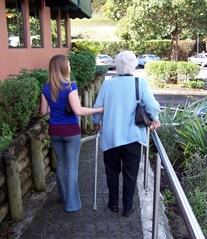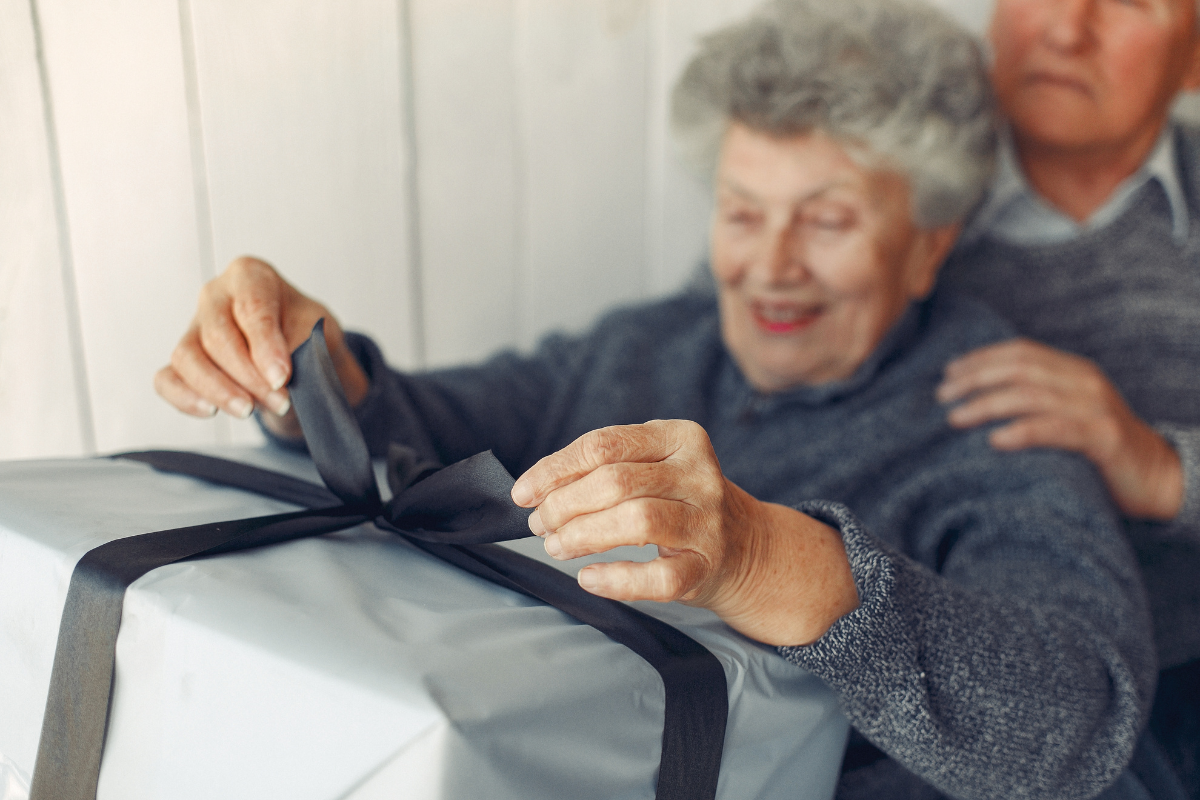Becoming a Family Caregiver: 10 Tips
 When a loved one becomes ill, family and friends are often thrust into the caregiver role, creating questions like:
When a loved one becomes ill, family and friends are often thrust into the caregiver role, creating questions like:
-
What do I do first?
-
What kinds of help can I get?
-
Where can I look for help?
When you’re acting as a caregiver, whether it’s happened suddenly or was a gradual transition, it’s important to understand your role and who can help. Here are 10 tips to help you become a caregiver.
1. Self-identify early.
Early self-identification as a caregiver can help you identify your new priorities quicker. To do this, consider if you do any of the items listed below for another person:
-
Cook, clean, transport, problem solve, advocate
-
Provide companionship and emotional support
-
Handle bills
-
Help with household tasks like buying groceries, running errands, cooking, cleaning the house, doing laundry
-
Make medical appointments and drive to the doctor and drugstore
-
Remind someone to take pills or provide personal care
2. Learn all about your loved one’s condition.
Become informed. Learn about your loved one’s diagnosis and treatment so you have a sense of what to expect. With your loved one’s permission, you may want to speak to the doctor or nurse if you have any concerns. Having up-to-date medical information can help you to manage your loved one’s health care and medications, and it is crucial to have in case of an emergency.
To help keep your loved one’s information organized, use these Printable Health Information Checklists. These lists include things like your loved one’s date of birth, Social Security number and health insurance information. 3. Learn what your loved one’s insurance pays for.
For help with insurance rules and regulations, contact the insurance company (which you’ll have available on the checklists above). Some will assign a case manager to address concerns, clarify benefits and suggest ways to obtain additional health-related services.
4. Review or create legal documents.
At a minimum, review or create a Durable Power Of Attorney (DPOA) for healthcare. Other important legal documents include living wills, advance directives, Transportable Physician Orders for Patient Preferences (TPOPP), DNR, and on the business side, DPOA for finances, trusts, wills and estate planning.
5. Organize help.
Decide which of your loved one’s needs you can meet on your own, and which ones you need help with. Then, ask family members, friends, neighbors, co-workers or professionals to share the care. Ideally, many people will want to help. Realistically, only one or two people may be available. These few people can make a big difference. Check with community agencies, religious institutions or a hospital social worker for information on volunteer and respite care programs.
Join a Support Group for caregivers. Support groups help many caregivers find comfort while they try to balance their loved one’s needs with their own. The group provides a safe, supportive environment for sharing feelings and discussing the challenges and rewards of being a caregiver.
6. Try to continue some of your previous activities.
Do something good for yourself. Take a few moments for yourself each day to do something enjoyable or relaxing, even if it’s just taking a walk around the block. Give yourself credit for all you do as a caregiver, and find ways to reward yourself for working hard.
7. Think about how you’ll manage your job and caregiving, and understand your rights.
Under the Family and Medical Leave Act, most employers are required to provide up to 12 weeks of unpaid, job-protected leave for family members who need time off to care for a loved one.
8. Pace yourself.
Your health is valuable. Stay on top of your doctor appointments, and find a good system for remembering to take any medications you need to stay healthy.
9. Get individual help.
As a caregiver, you may sometimes feel overwhelmed and need more than friends or family members to talk to. Speaking with a counselor or social worker can help you cope with some of the emotions or concerns you may be facing. 10. Be prepared for when your role as a caregiver ends.
How you cope with caregiving makes a difference. It will be easier to start whatever comes next if you were able to maintain a reasonable balance between caregiving and all the other important parts of your life. There is life after caregiving. What it will be depends, in part, on how you lived through caregiving.
Crossroads Hospice provides complimentary Grief Recovery Groups for those who have suffered a loss. For more information about the support we provide to caregivers, please visit our website or call 1-888-564-3405.
Judy recently spoke on this topic on the Senior Care Live podcast. You can listen to it here. She will speak more about caregiving and specifically living with Alzheimer’s Disease on the Senior Care Live radio program on Sunday, November 16, 2014 at 2pm CST.
 |
Judy Waechter, RN, CRRN Community Educator Crossroads Hospice |
If you found this information helpful, please share it with your network and community.
Copyright © 2015 Crossroads Hospice. All rights reserved.




